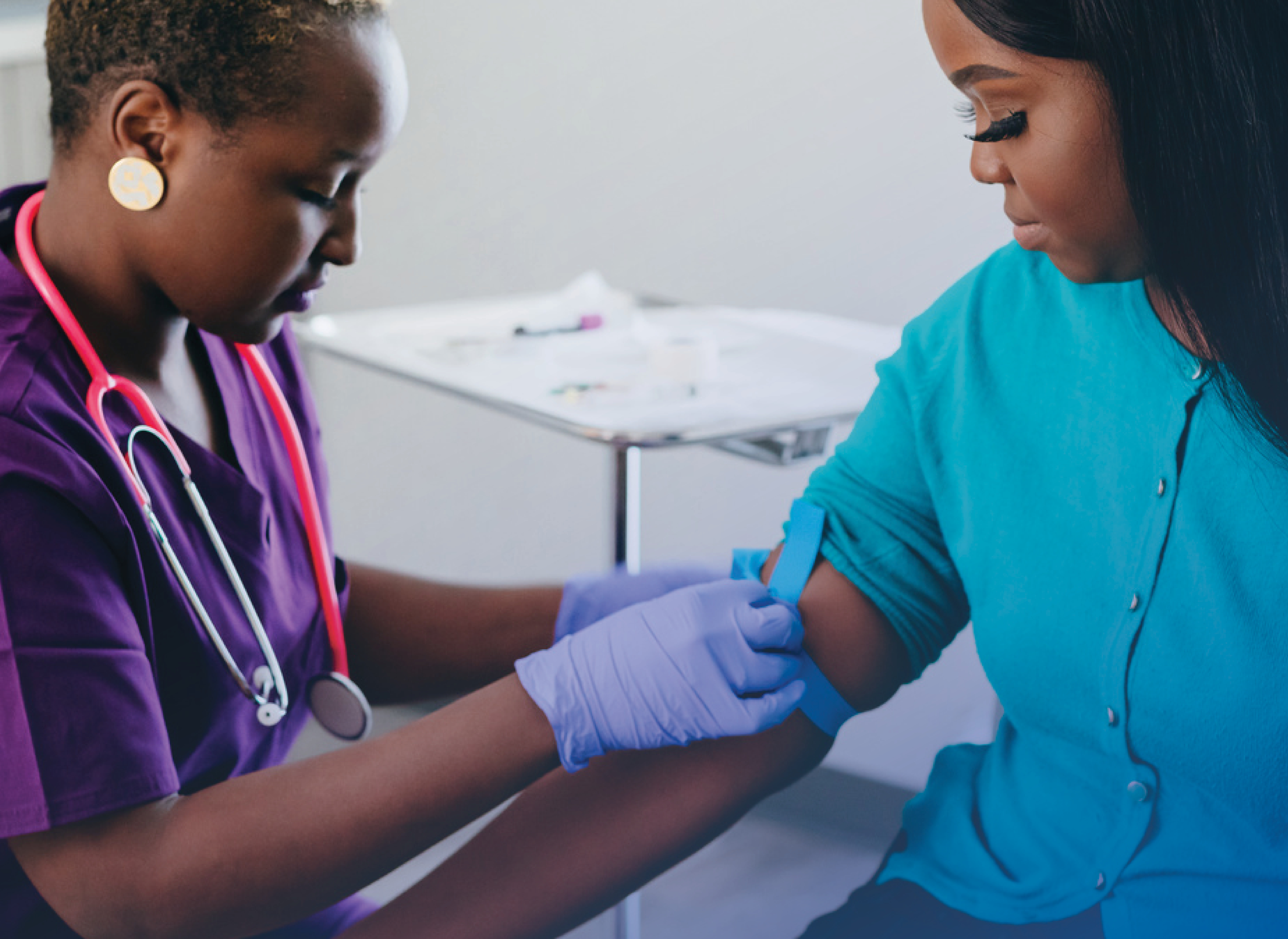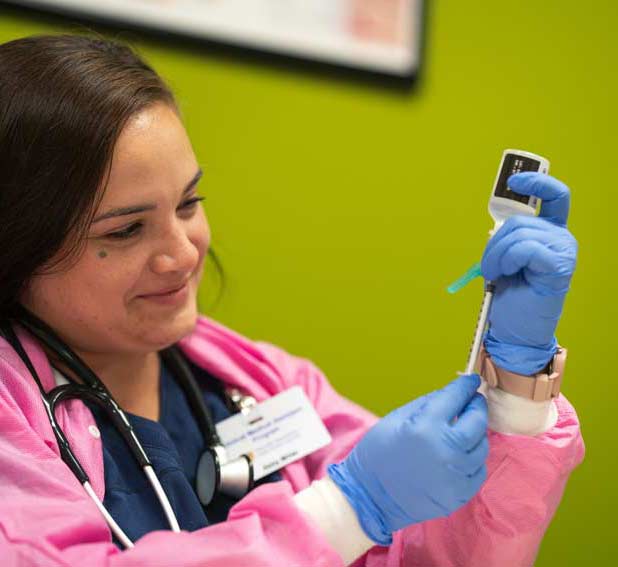Phlebotomy Courses Near Me for Career Changers: Is It the Right Move?
Phlebotomy Courses Near Me for Career Changers: Is It the Right Move?
Blog Article
The Path to Qualification: Understanding the Phlebotomy Educating Program Trip and Its Relevance
As you take into consideration the course to accreditation in phlebotomy, it's essential to understand the duty you'll play in health care. Your training will cover important skills, from blood collection techniques to patient communication.

The Role of Phlebotomists in Medical Care
Phlebotomists play a crucial function in the healthcare system, working as the essential web link between people and necessary diagnostic screening. You'll execute blood draws, guaranteeing samples are gathered properly and securely. Your proficiency assists in identifying clinical conditions, checking health, and assisting therapy decisions.
In your daily interactions, you'll need to develop trust with patients, making them really feel comfortable throughout what could be a difficult experience. You're liable for classifying and taking care of samples meticulously to avoid contamination or mistakes, which could impact examination results.
Yet, you'll commonly work alongside physicians and registered nurses, communicating essential info regarding people' problems. Your role is essential in preserving the process in medical care setups, ensuring timely and exact outcomes. By understanding your abilities, you contribute meaningfully to patient care, making you a vital component of the clinical group. Embracing this responsibility is essential to your success as a phlebotomist.
Introduction of Phlebotomy Training Programs
When checking out phlebotomy training programs, you'll discover various types designed to fit various timetables and discovering styles. Each program assists you establish important skills like blood collection and patient communication. Recognizing these choices is essential to choosing the best path for your career.
Kinds of Educating Programs
A number of kinds of training programs are readily available for those aiming to come to be efficient in phlebotomy. You can select from certificate programs, which usually last a couple of months and concentrate on important skills. There are additionally diploma programs that supply a more thorough education and learning, typically lasting up to a year. If you're seeking a deeper understanding, an associate level in an associated field could be the best fit. On-line programs offer versatility for those balancing job or household dedications, enabling you to research at your own rate. Furthermore, some hospitals and centers provide on-the-job training programs, providing functional experience while you learn. Whatever course you pick, each program aims to outfit you with the required abilities for a successful phlebotomy occupation.

Key Skills Established
Grasping phlebotomy requires a collection of essential abilities that are established through thorough training programs. Furthermore, communication abilities are essential; you'll require to engage with patients, clarify procedures, and placed them at simplicity. Each of these abilities is vital for your success as a certified phlebotomist, making you a beneficial possession in any kind of health care setup.
Secret Elements of a Phlebotomy Course
In a phlebotomy training course, you'll focus on crucial topics that prepared for your future profession. You'll take part in hands-on training that enables you to use what you've found out in real-world settings. Both the curriculum and practical experience are crucial for your success as a phlebotomist.
Curriculum Introduction
While seeking a phlebotomy training course, you'll come across a curriculum developed to furnish you with basic skills and understanding. Phlebotomy school. This educational program usually includes composition and physiology, concentrating on the circulatory system and recognizing blood components. You'll likewise discover different kinds of blood collection approaches, including venipuncture and capillary slit strategies
In addition, infection control and safety protocols are necessary components, guaranteeing you understand just how to preserve a sterilized atmosphere. You'll study patient communication, highlighting communication and empathy, which are vital for reducing person stress and anxiety. Moral and lawful considerations will certainly be addressed, preparing you for real-world obligations. This fundamental understanding will certainly allow you to succeed as a phlebotomist and give top quality treatment in professional settings.
Hands-On Training Experience
Getting hands-on experience is an indispensable component of your phlebotomy training program. click over here now This useful training permits you to use what you have actually learned in a real-world setting, boosting your skills and self-confidence. Phlebotomy Classes Near Me.
Furthermore, you'll get the possibility to connect with clients, which is vital for creating your communication skills. This mix of technical efficiency and social abilities is critical for your success as a certified phlebotomist. Eventually, hands-on training is where concept fulfills technique, strengthening your knowledge and preparedness for certification.
Accreditation and Licensing Needs
Before you can start your career in phlebotomy, it is vital to recognize the accreditation and licensing needs that differ by state. Most states need phlebotomists to hold an accreditation from an identified company, such as the National Phlebotomy Association or the American Society for Medical Pathology. These qualifications typically include passing an examination that checks your expertise and abilities in the area.
In addition to certification, some states have particular licensing demands. You might require to finish a particular variety of hours in professional technique, send evidence of training, or undertake a history check. It is vital to investigate your state's regulations to see to it you meet all required criteria.
Staying informed about these requirements not just aids you safeguard a placement yet additionally improves your reputation as a specialist. By meeting these needs, you'll be well on your method to an effective profession in phlebotomy.
Hands-On Training and Practical Experience
Hands-on training and functional experience are crucial components of your phlebotomy education and learning, as they permit you to apply theoretical knowledge in real-world scenarios. Throughout your training, you'll participate in supervised venipuncture, find out appropriate methods, and end up being knowledgeable about numerous blood collection tools. This direct involvement is essential for developing your confidence and honing your abilities.
You'll work closely with seasoned experts who can lead you through the nuances of person interaction and example handling. Each method session not only reinforces your understanding however also prepares you for the hectic atmosphere of medical care settings.
Additionally, lots of programs incorporate clinical turnings, allowing you to experience varied settings, from health centers to outpatient facilities. This direct exposure assists you adjust to various difficulties and individual demands, ensuring you're well-prepared for your future role. Embrace these opportunities, as they're vital to ending up being a qualified and compassionate phlebotomist.
Difficulties Encountered During Training
While obtaining hands-on experience is vital, it is very important to acknowledge the obstacles that can arise during your phlebotomy training. You could encounter stress and anxiety when executing procedures on genuine people, especially if you're new to the environment. The pressure to obtain every little thing right can be overwhelming. Furthermore, understanding the abilities required for blood Homepage draws takes method; you might fight with technique at first.
Time management can also be a hurdle, as balancing theory, useful sessions, and personal commitments can feel intimidating. You might face differing finding out rates amongst your peers, bring about sensations of insecurity if you assume you're dropping behind. Adapting to the various individualities of teachers can be tough, as each may have a distinct training style.
Recognizing these obstacles early can prepare you for success and assist you establish resilience throughout your training journey.
Job Opportunities After Qualification

As you obtain experience, you could also take into consideration focusing on locations like pediatric or geriatric phlebotomy, satisfying specific individual demands. Some phlebotomists pick to advance their occupations by becoming lab professionals or going after more education and learning in healthcare areas.
In addition, your certification can cause duties in training or managing new phlebotomists, enabling you to share your understanding. With the medical care market continually growing, your skills will constantly remain in need, paving the means for a stable and fulfilling job. Welcome the chances waiting on you!
Often Asked Concerns
What Is the Normal Period of a Phlebotomy Training Training Course?
Phlebotomy training courses generally last around four to eight weeks. You'll participate websites in hands-on method, classroom guideline, and online learning. Completing this training prepares you for qualification and a gratifying profession in health care.
Are Online Phlebotomy Courses Available?
Yes, online phlebotomy programs are offered. They supply flexibility and comfort, permitting you to study at your own pace. Just validate the program is approved to fulfill certification requirements and get valuable abilities for your profession.
Just How Much Does Phlebotomy Training Typically Cost?
Phlebotomy training typically sets you back in between $700 and $2,500, depending upon the program and location. You must consider factors like training course length, included materials, and hands-on experience when picking the best training for you.
What Are Typical Prerequisites for Phlebotomy Training?
Usual prerequisites for phlebotomy training often include a secondary school diploma or GED, booster shots, and a history check. Some programs may additionally call for standard health care knowledge or qualifications, ensuring you're planned for hands-on training.
Can I Function While Finishing My Phlebotomy Training?
Yes, you can work while finishing your phlebotomy training. Numerous pupils equilibrium jobs with their researches, however ensure to handle your time properly to assure you satisfy both work and training dedications successfully.
Report this page